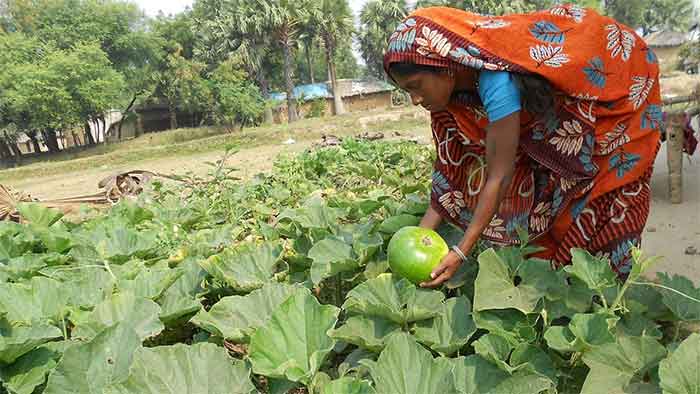
While issues relating to farmers are being discussed widely these days, we need to also discuss issues concerning landless farmer households. The fact that the landless also need to be provided at least small plots of cultivation land had a lot of acceptance till the not-too-distant past. Around this acceptance policies were framed, legislations were enacted and special drives for providing land to the landless were launched from time-to-time. It is a measure of the changes that have taken place in recent times that hardly anyone in the union government and most state governments even talks about all this these days.
Even in these adverse conditions, it is very important to keep alive the idea of land reforms and land for the landless. Hence a beginning can perhaps be made by promoting the idea of kitchen gardens for landless households. Briefly this means that all landless households should have secure homestead rights of course in the village and attached to this should be the right to cultivate a little land near their homes and hamlets in their village, with mutual co-operation and also making use of the waste kitchen water and compostable wastes. These kitchen gardens can be used to grow a diversity of foods with emphasis on highly nutritious ones like green leafy vegetables. Organic methods should be used for this and purchase of external industrial inputs should be avoided as much as possible, keeping costs at lowest levels. The government can help by giving a small grant per kitchen garden and also giving prizes for the most creative such efforts in a panchayat. Poultry and animal husbandry can also be encouraged alongside.
Of course the detailed form this concept takes will depend on housing, location of hamlet of landless households and other very local factors and a highly decentralized, local-specific approach is needed. Many creative possibilities will emerge in the process of consultations and implementation.
Needless to add, this is envisaged as only one very limited aspect of land rights and possibilities of wider land reforms , including the concept of a minimum land holding, remain open.
Similarly the concept of kitchen gardens is relevant for other rural poor households also, not just those who are entirely landless. In fact this concept is very relevant even for urban poor households who can meet their need for very nutritious and fresh, organic vegetables from even small kitchen gardens to some extent. Space is a more limiting constraint in an urban settlement compared to a rural settlement but, as they say, where there is a will there is a way. Sometimes very productive and creative use can be made even of very small patches of land or terrace. This keeps the urban migrant in touch with plants and greenery, and this itself is a contribution in addition to some availability of nutritious vegetables, a flower or two also peeping from here and there.
The entire work of creating kitchen gardens in small vacant places is so creative and can bring so much cheerfulness and happiness that this itself may be a good enough reason for promoting this all over the country, but in addition, let us re-emphasize, the contribution to nutrition and health of the poorest households can also be at an important level.
Bharat Dogra is a journalist and author. His latest books include Man Over Machine and Planet in Peril .
SIGN UP FOR COUNTERCURRENTS DAILY NEWSLETTER







































